How will a government promise to simplify the UK’s “complicated” rail network impact passengers and fares.
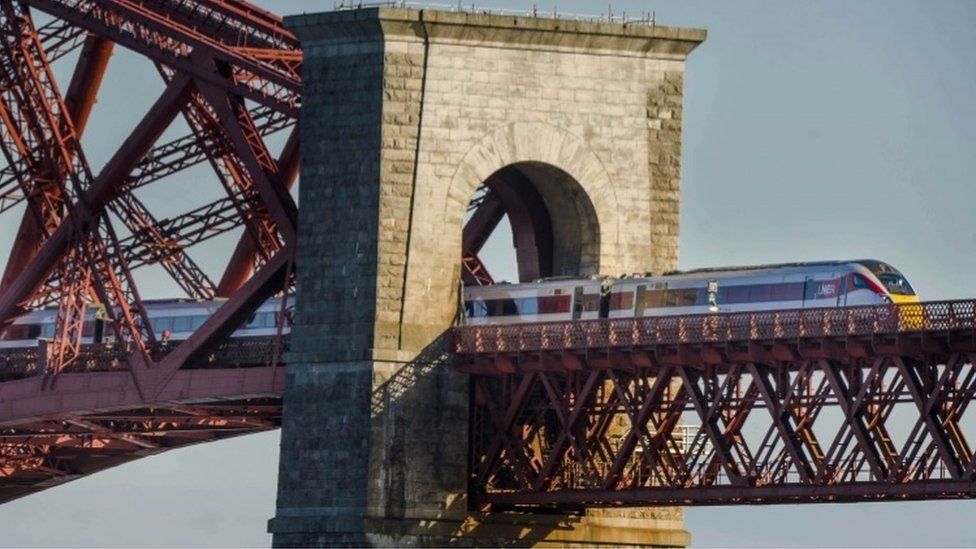
image copyrightPA Media
Rail passengers face a dizzying array of prices to travel on trains around the UK at the moment. In fact, there are tens of millions of different fares.
Proposals aimed at making train travel more attractive have been published under the biggest shake-up for the rail sector in decades.
So how will this planned revamp affect passengers and fares?
Yes, new flexible season tickets to fill the gap between a daily and weekly pass will be on sale from this summer.
The influence of the Covid crisis means they will be attractive to part-time commuters (who spend time working from home) as well as part-time workers.
Those who travel two days a week will particularly benefit, as will some who travel for three days. It would have far less impact for four-day-a-week travellers.
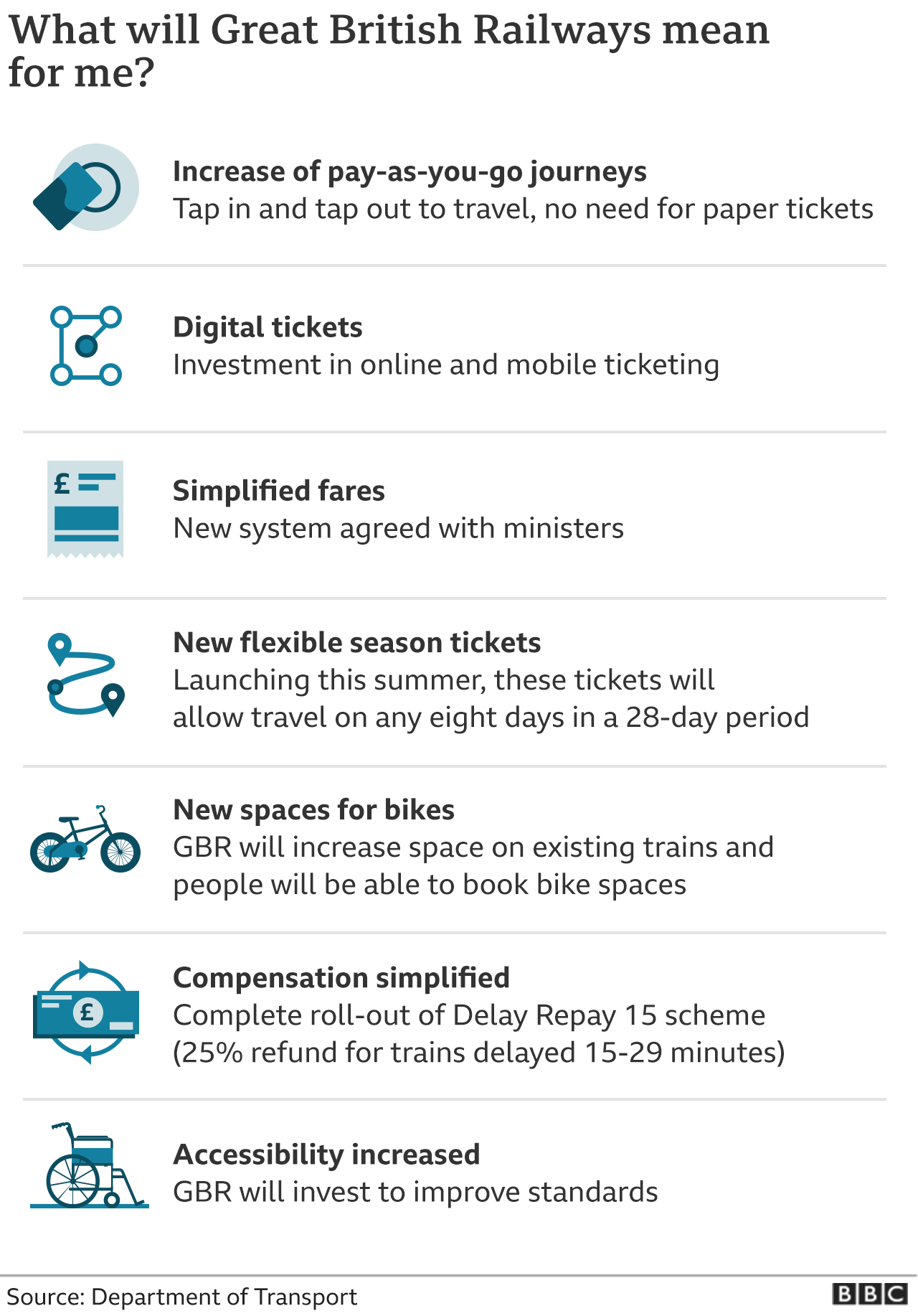

Most rail passengers have at some point stood in front of a ticketing machine scratching their head at the different, confusing options. That is one reason why, before the pandemic, half of all tickets were bought at a counter or sent through the post.
Although the report wants the system to be simpler, that doesn’t mean there’ll be fewer tickets to choose from.
The report says that there should actually be a greater range of book-ahead tickets for long-distance travel.
The key to simplicity is whether the plan for digital ticketing on a single website and app works well. In theory, it should show you the best, and cheapest, options for the journey you want to make.
This report does not specifically recommend that individual tickets should be cheaper, or not go up in price every year as fast.
Instead, it says they should be better value. For example, buying a flexible ticket will mean some people spend less than they otherwise would.
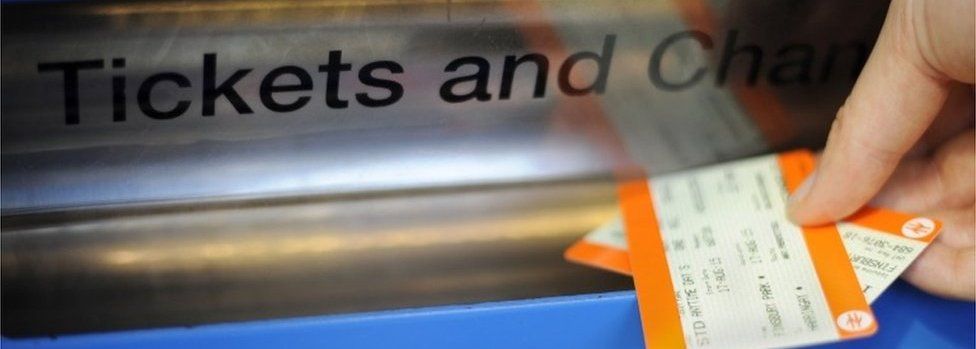
image copyrightPA Media
Tickets bought in advance would still be the cheapest.
Also, pay-as-you-go technology – similar to that used in London – should automatically ensure a fare is capped to the cheapest available. So, by using the same payment card each day, the system will know when you have travelled enough to only charge for a weekly ticket.
More generally, a more efficient rail network should be cheaper to run, but there is no guarantee those savings would be passed on to passengers in lower fares.
Some passengers use split ticketing to make a long journey cheaper than it would be as a single fare. A number of websites have popped up to help make those savings.
That has meant those who know what to ask, and where to look, get a cheaper journey.
The new system should ensure the cheapest option will be much easier to find.
Yes, and again, this system should become more automated.
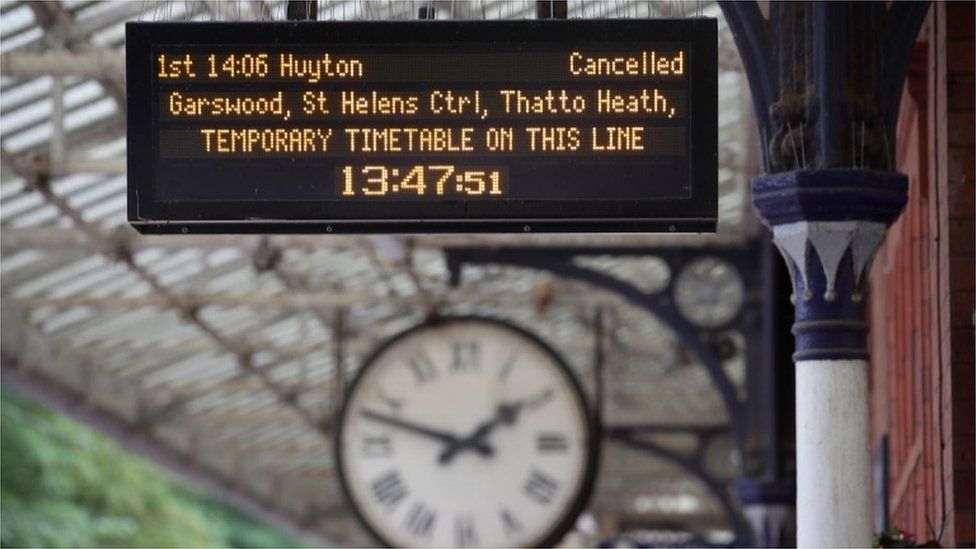
image copyrightPA Media
Full or partial refunds are paid for trains that arrive 15 minutes or more late or are cancelled. However, only 37% of passengers actually claim their entitlement.
The report says a single online system should make claiming easier, as should notifications sent to passengers’ devices. In time, automatic refunds should be more common.
Only a fifth of stations have step-free access to all platforms.
A full accessibility audit is being planned, making it easier to plan ahead.
A wider strategy is designed to make improve access for entire journeys – including getting to and from stations.
Significant improvements will need to be made to improve the experience for passengers with disabilities.
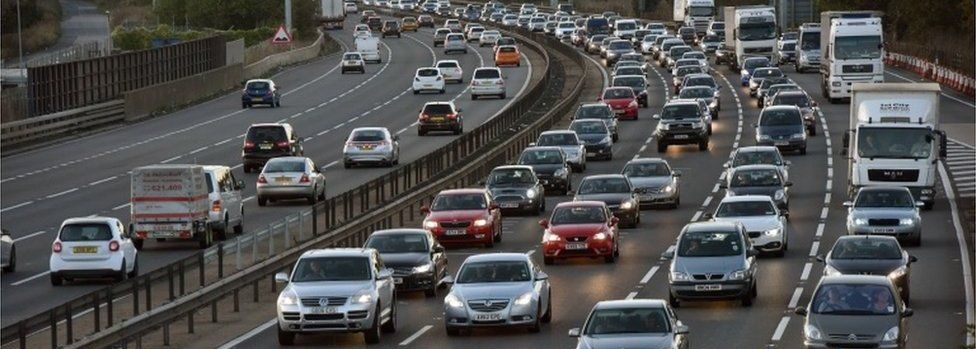
That is a much broader question to answer.
Remember, before Covid lockdowns, the vast majority of commutes (68%) in the UK were made by car, van or minibus, although they were most likely to be less than 15 minutes each way.
Surveys suggest cost and convenience are the main reasons that commuters jump in a car.
Space for bikes on trains has fallen, even though the popularity of cycling has increased.
The plan aims to make more bicycle space available and improve joined-up ticketing for those using a bus and train for their journey.
And, the review dangles one more carrot in front of potential rail commuters.
“There will be fewer annoying and repetitious recorded announcements,” it says.